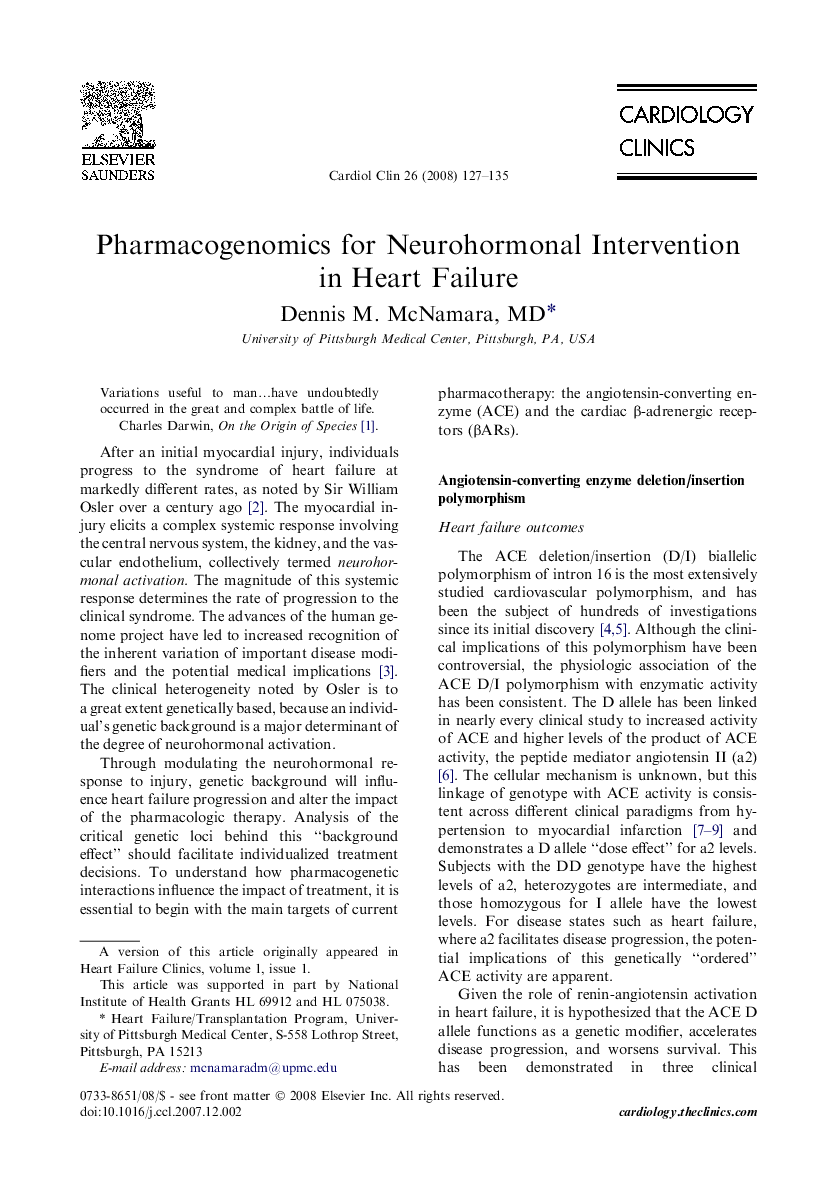| Article ID | Journal | Published Year | Pages | File Type |
|---|---|---|---|---|
| 2898546 | Cardiology Clinics | 2008 | 9 Pages |
Neurohormonal activation is an important driver of heart failure progression, and all pharmacologic interventions that improve clinical outcomes inhibit this systemic response to myocardial injury. Functional polymorphisms affecting mediator levels and signal transduction are present in genetic loci critical to renin-angiotensin and sympathetic activation. Clinical investigations have demonstrated that these neurohormonal polymorphisms influence heart failure outcomes and alter the effectiveness of drug therapy. Genetic variation of disease modifiers such as angiotensin-converting enzyme (ACE) and β-adrenergic receptors influences ACE inhibitor and β-blocker effectiveness. The investigation of functional genomics will allow pharmacologic therapeutics to be tailored to an individual's specific genetic background. This article explores how genetic variation in genes involved in neurohormonal activation influence heart failure outcomes and the impact of pharmacotherapy.
